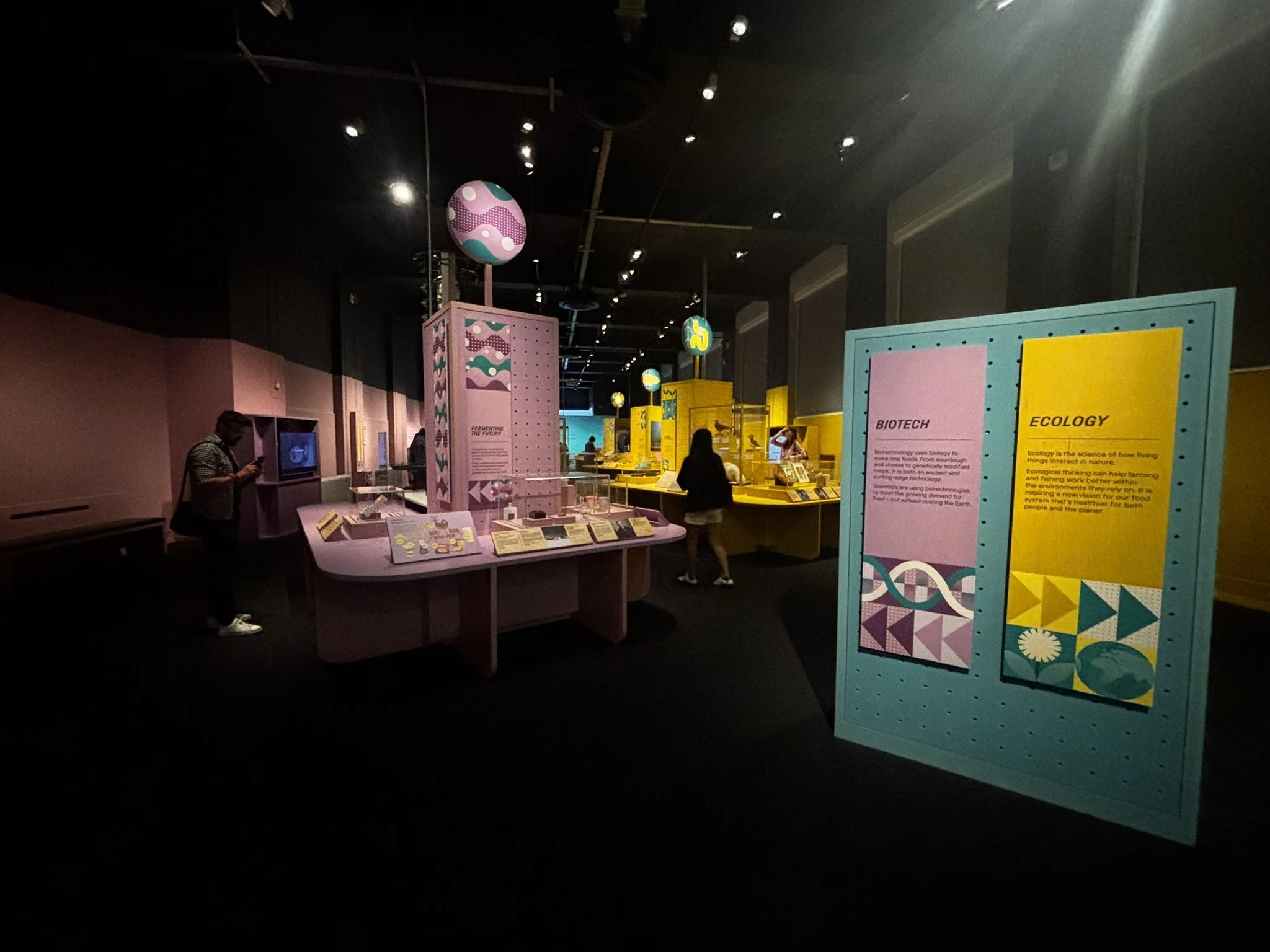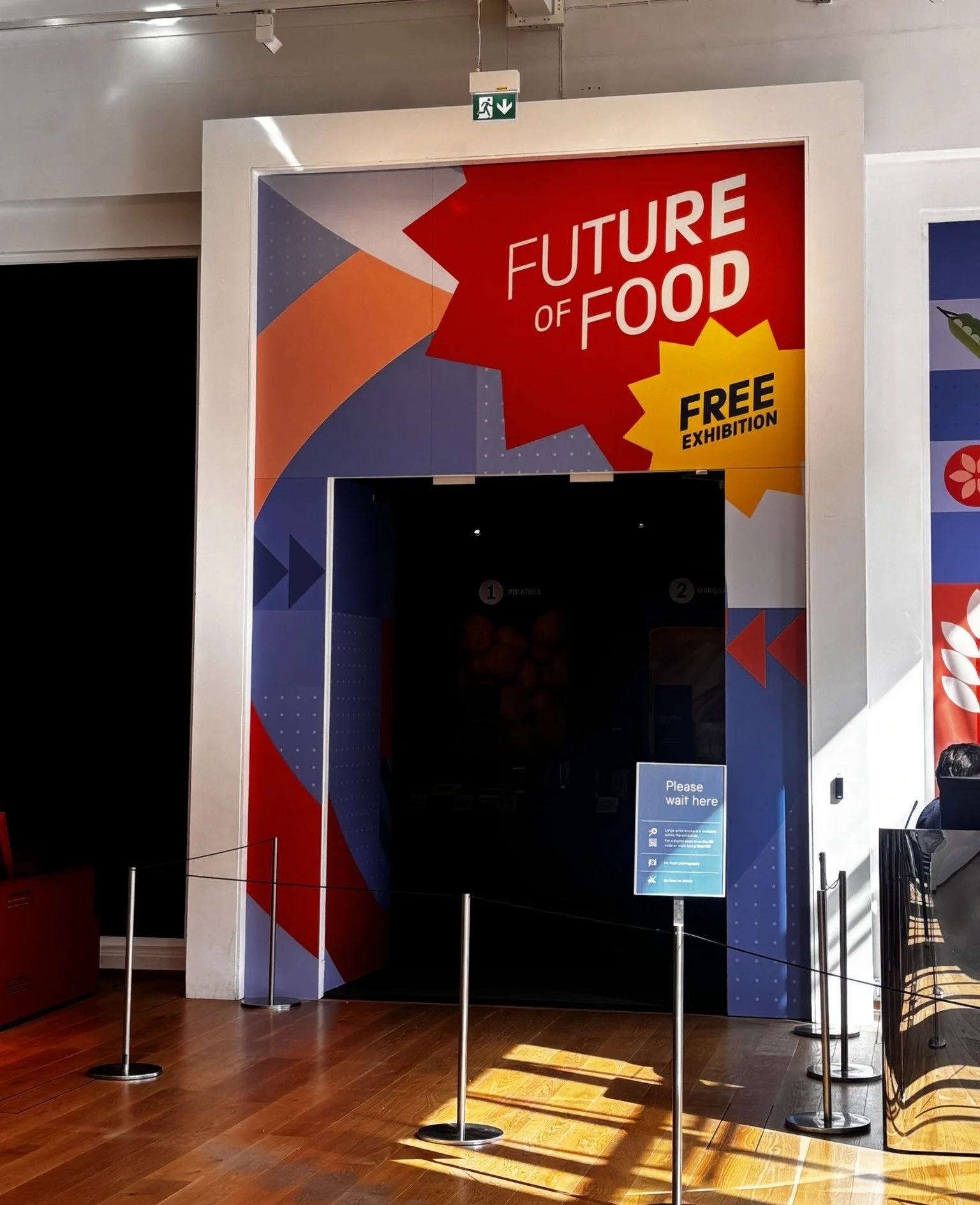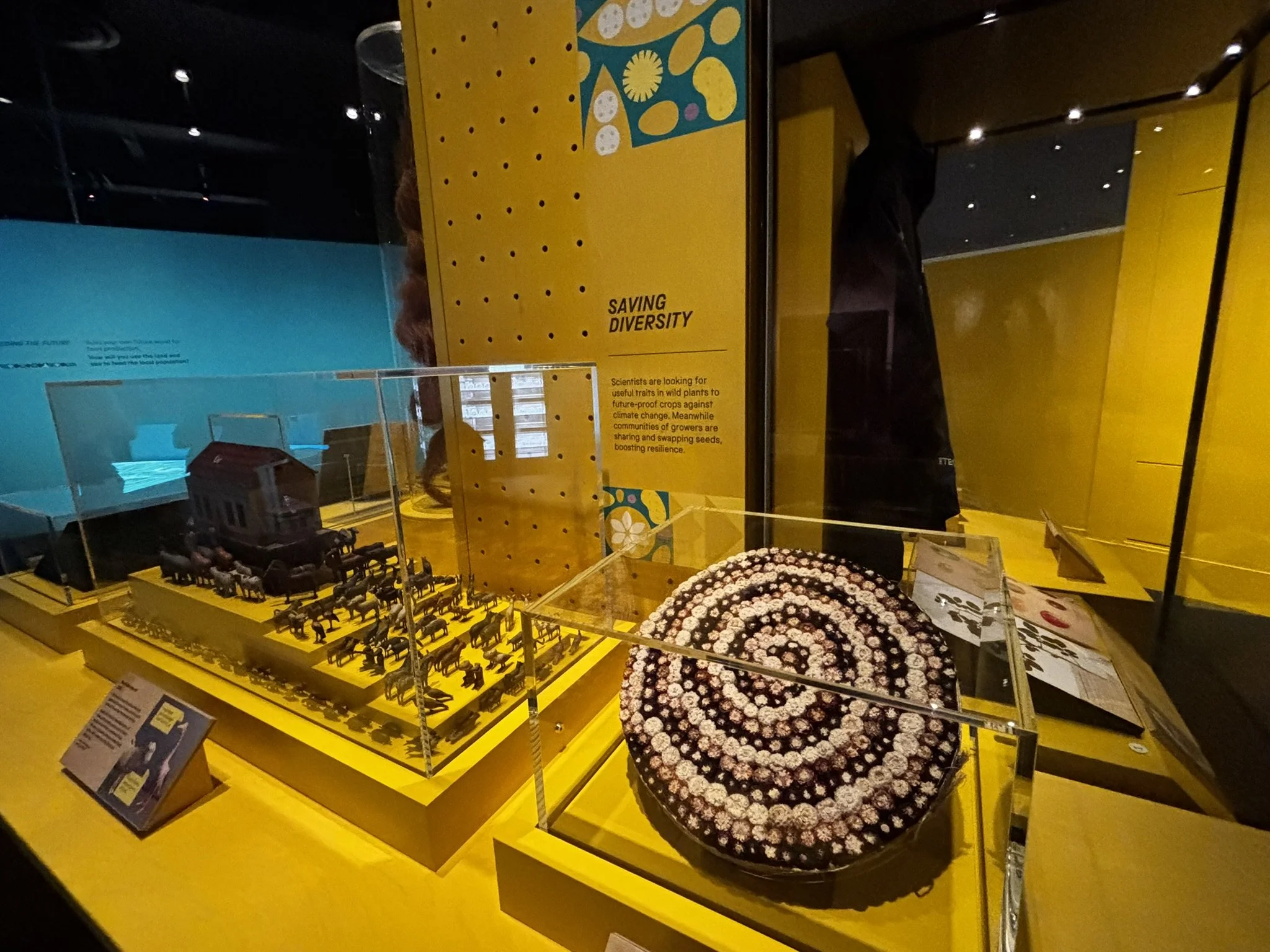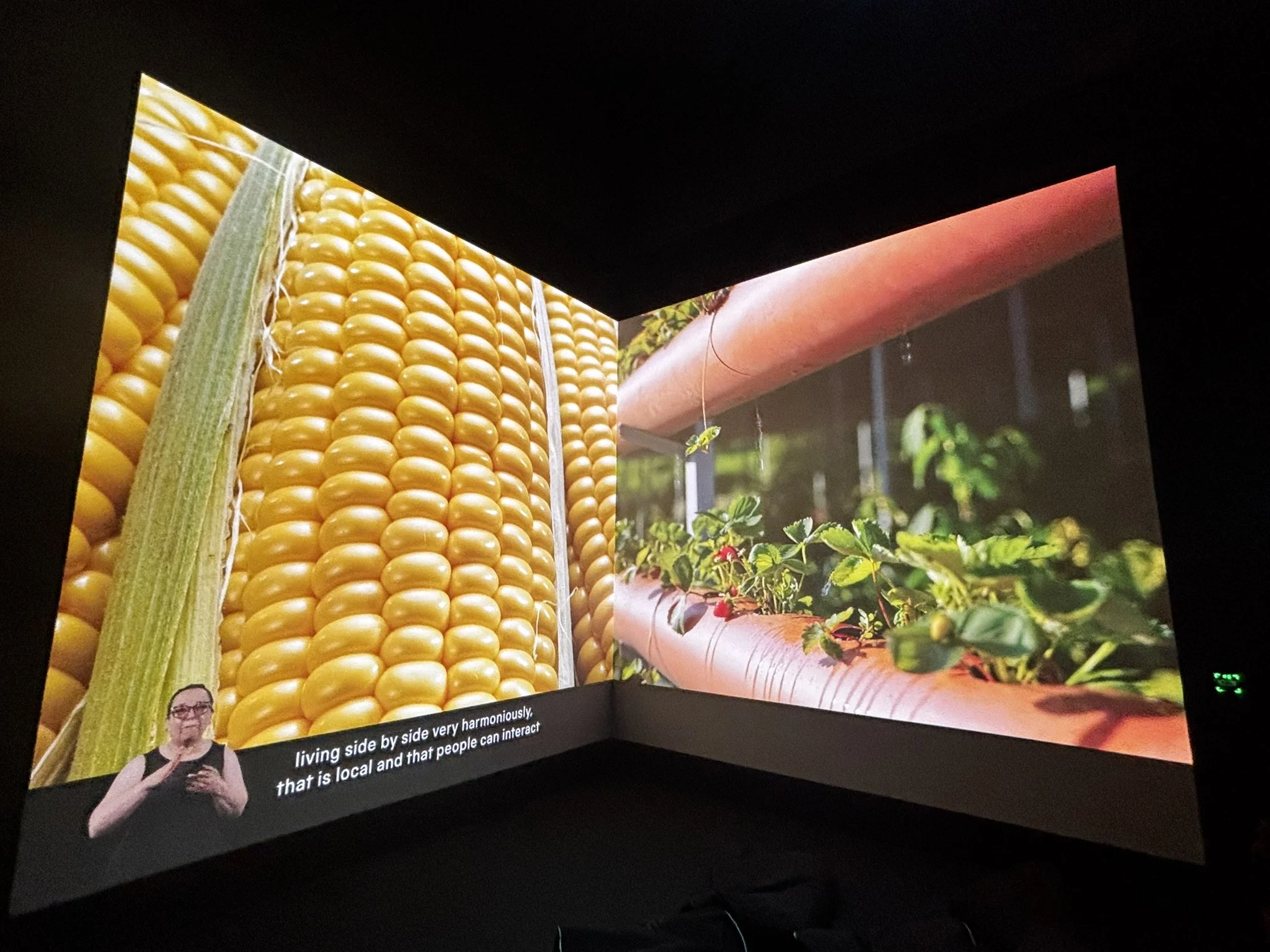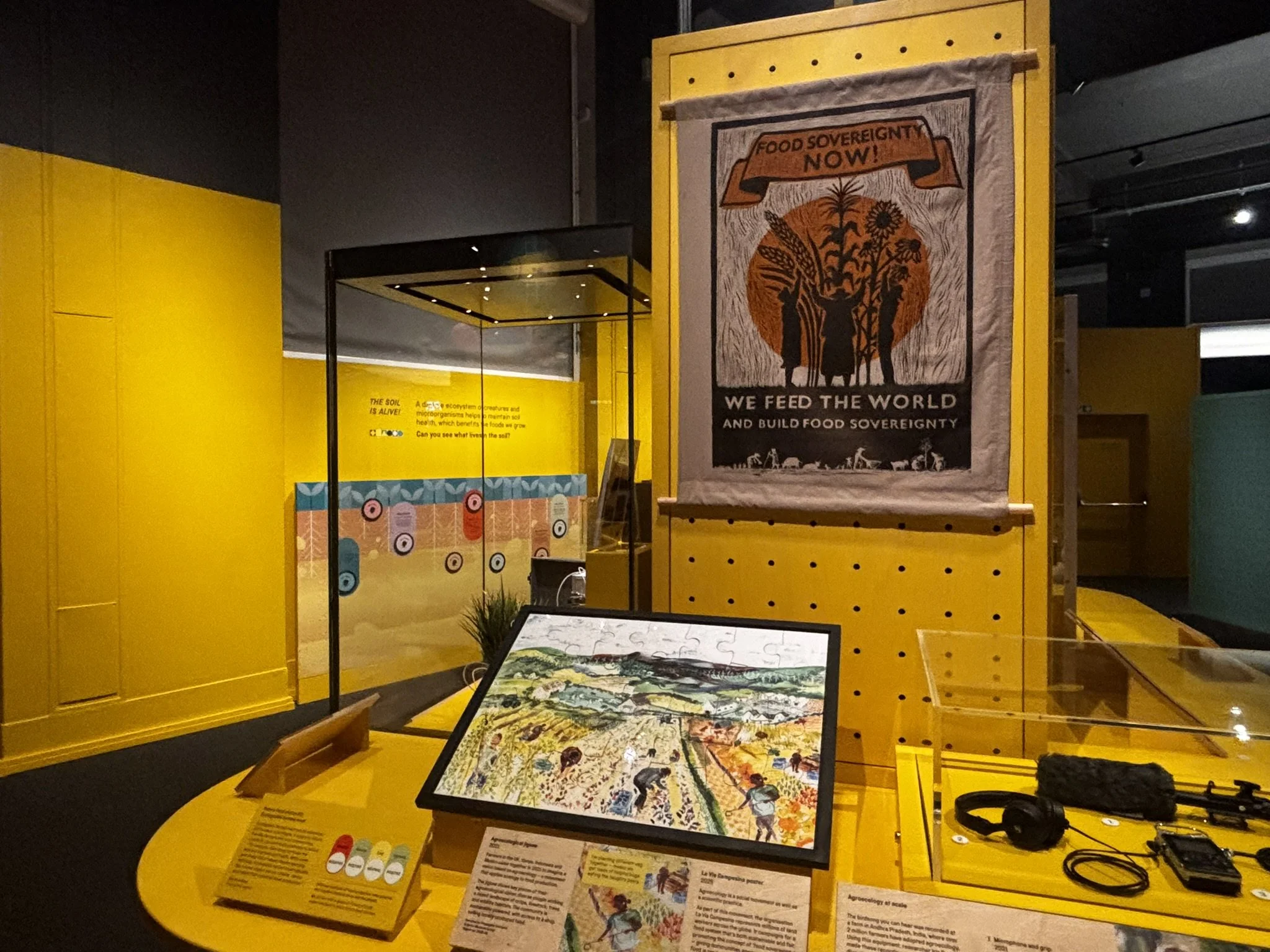When food (and its future) becomes an exhibition
Attention, food lovers: the Science Museum in London is inviting you to explore Future of Food, a new and free exhibition that goes far beyond what’s on our plates. It’s about how our food systems must change to protect the planet, while feeding a growing global population amid the realities of climate change. Running from 24 July 2025 to 4 January 2026, Future of Food is an immersive experience for visitors of all ages. It dives into the history of global food production and offers a compelling look at possible routes toward more sustainable food systems.
Yes, you read that right: food and sustainability are inextricably linked. As we head toward a global population of 10 billion by 2050, our current food systems, responsible for approximately one-third of global greenhouse gas emissions (GEEs), significant biodiversity loss, and 70% of freshwater use, are widely seen as unsustainable. That makes the future of food one of the most urgent sustainability challenges we face today.
This is where science steps in, not with so-called "Frankenfoods" (we’re quoting TimeOut here), but with innovation grounded in centuries of agricultural evolution. Humans have applied science to food production ever since we began crossbreeding plants. Or fermenting grains into beer. In fact, fermentation is the oldest known biotechnology.
The exhibition showcases over 100 historic and contemporary objects spanning 3,500 years, including a 3,000-year-old Egyptian sourdough bread (sadly (or not if you are allergic to gluten), not available for tasting). These objects tell powerful stories of how human ingenuity, environmental change, and technological innovation have shaped what and how we eat.
Other fascinating highlights include:
The first-ever Quorn burger
A beef steak grown outside a cow
A live bioreactor from UK food-tech company Clean Food Group, demonstrating how a naturally occurring yeast (Metschnikowia pulcherrima) can be fermented into a sustainable alternative to palm oil.
Future of Food invites visitors to look beyond their supermarket shelves and unpack the complex, interconnected systems that bring food to our tables. You’ll learn about everything from the Irish Potato Famine to Fritz Haber’s development of synthetic fertilisers, the Rachel Carson’s Silent Spring, the global food and seed vaults to community-led efforts to preserve wild and heritage plant varieties. In Brazil, community-led efforts are crucial for preserving wild and heritage plant varieties. These " creole seeds" are vital for crop biodiversity and food security.
Cutting-edge solutions on display include agroecology, sustainable fishing, cellularagriculture, and genetically engineered crops and animals. Would you try cell-grownmeat or fish? A bird flu-resistant chicken? How about fertiliser-free barley or a cricket burger?
According to Sir Ian Blatchford, Director and Chief Executive of the Science Museum Group, the exhibition is "about how we produce, consume and connect with food.” Rupert Cole, Lead Curator of Future of Food, adds that he hopes the exhibition “will inspire visitors to engage with new ideas and technologies that could transform our food system, and encourage them to consider what kind of future we want for food and for the planet.”
Future of Food has been made possible thanks to the generous support of the Coller Foundation (Principal Funder), Tate & Lyle PLC (Principal Sponsor), UKRI Biotechnology and Biological Sciences Research Council (Major Funder), The Huo Foundation (Major Funder), Benugo (Major Sponsor), AKO Foundation (Associate Funder), and The Montreal Estate.
Plan your visit:
Science Museum, Exhibition Road, London SW7 2DD
Open until 4 January 2026
